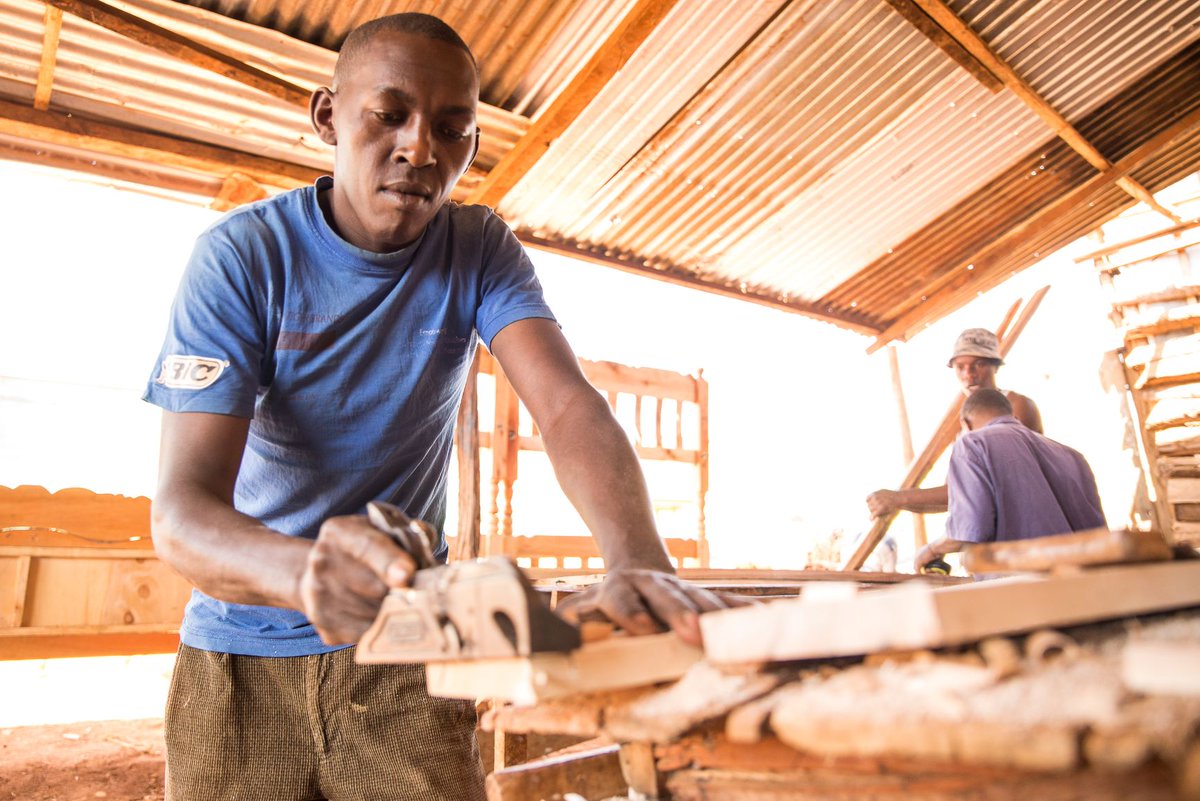Business
Carpenters are Hammering Cash into Bank Accounts, This is How

The government in the current regime has emphasized more on both formal training and technical training. This has been through the establishment of Technical Training Institutes commonly referred to as TTIs across the country. Actually the curriculum is set to change in the coming years to accommodate more technical subjects to be taught in school.
There has been a deficit of trained artisans in the market. It would be very hard to find a qualified person to carry out joinery for you when in need. Even when such a person is found they are on high demand and they charge relatively high for the services they render.
Narok County is no exemption. I sought to speak to some carpenters to find out why they selected this line of duty.
“Carpentry has money!” is the first answer I get from my first carpenter interviewee, Mr. Nickson Ojwang.
“On a daily basis such as now when the students are settling back to school and some are moving out of the school hostels the flow of work is steady I make over Ksh.3, 000. This is actually on average.”
A bed costs from Ksh. 2,500 to Ksh. 4,500 depending on the type of bed. On a good day, the carpenter can make over two beds which would easily translate to Ksh.5,000 per day.
This is a field that earns them a living and makes them prosperous businessmen and women.
“It is through this work that I have been able to build a good house back home. I have also bought a shamba in Migori and have also built there. This hustle also feeds my children and caters to other needs that I may have. It has also helped me develop multiple flows of income as I have purchased some motorbikes.”
Ojwang tells me that he began as an aid boy to a carpenter and learned in the process of helping the carpenter. He says that most carpenters actually start by being employed as aids and then they learn through experience. However, there are those who are properly trained through the polytechnics but he giggles as he says that sometimes they (apprentices) are smarter than they are.
Challenges they sometimes face
Challenges posed to them are sometimes the lack of good quality timber. They are also supplied with timber from people who sometimes are not reliable and mostly not from the county. They have also experienced the challenges of fluctuating prices due to what their competitors who retail furniture offer.
“We sometimes have to travel long distances to get the necessary materials for our work. You cannot compare the quality of products they offer now and the ones offered there before.”
Everything nowadays has changed for carpenters. The change has also affected the quality of nails. So sometimes Ojwang and his colleagues spend more on buying high-quality nails.
So what is the day of a carpenter like?
“I wake up early to arrive at my workshop in time to begin my day.”
He tells me that he makes the furniture on the basis of orders. Every day strives to keep his customers contented by offering them quality for their money.
The passionate carpenter places his customers first. This is how he is able to brand himself to attract more clients to his business.
Advice to the youth and aspiring entrepreneurs
Ojwang is always happy that when he makes a bed, table, or even a chair, for him this is helping the society grow.
As people say no work is better off than another, strive to make an impact in the society in a positive way. He advises that the youth should not be selective about jobs and that they should not ignore opportunities.
Ojwang started out as an aid but now he owns more than two workshops one in Majengo and another one in Narok.
“Take the baby steps and you will soon be where you have always admired to be. The youth should not wait for the government to offer them jobs. He challenges them to try something and this might just shape the community.
Surely no hustle is too small to earn you enough fortunes. Just start it and you will soon be there. Start it out and let us meet at the top.







